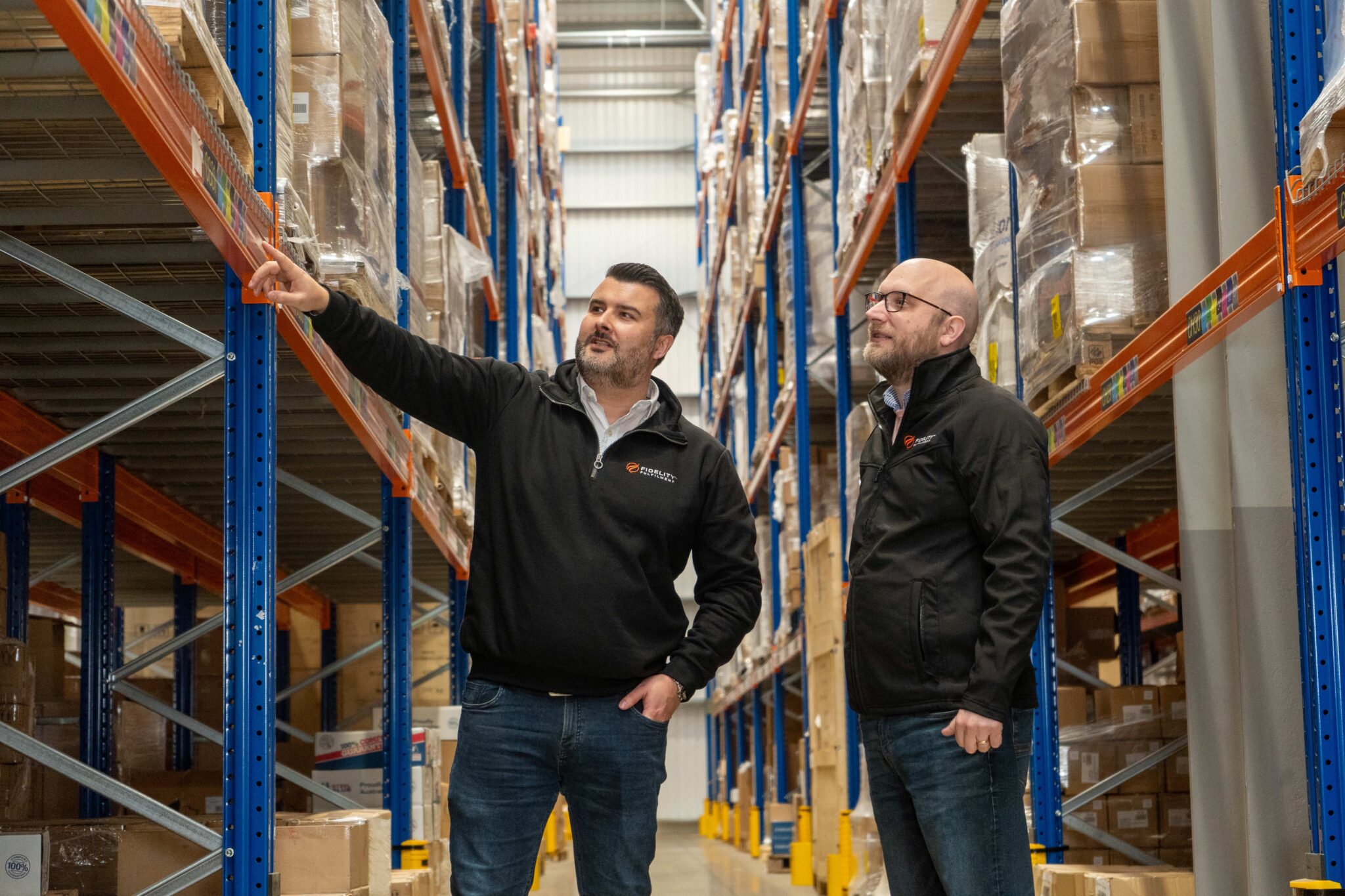Brexit’s second chapter shows that UK-EU Supply Chains have survived, but adapted. Logistics must evolve, not just recover, writes Stephen Williams, director and co-founder, Fidelity Fulfilment (pictured with co-founder Simon Vincent).
As the UK and EU enter a new phase of Brexit, we’re seeing that it demands a deeper reassessment of how logistics and fulfilment truly work across borders.
For the past few years, businesses on both sides of the Channel have been in reactive mode, patching up supply chains, firefighting disruptions, and doing whatever it took to keep goods moving. But we’re now beyond short-term fixes. In many ways, Brexit didn’t just disrupt logistics, it fundamentally reshaped it. The challenge now is not just to restore the old ways of working, but to embrace new models that reflect the reality of a structurally changed trade environment.
Drawing on my experience working across both the UK and EU fulfilment landscapes, it’s clear that this phase isn’t just about recovery, it’s about fundamental evolution.
Dual-entity warehousing as the new normal
One of the most significant shifts we’ve seen is the widespread adoption of dual-entity warehousing. For brands serious about serving both UK and EU markets, operating separate fulfilment entities is now standard practice. It might not be as lean or simple as pre-Brexit operations, but it’s faster, more compliant, and dramatically reduces the friction associated with customs delays, VAT complexity, and regulatory bottlenecks.
At Fidelity Fulfilment, we’ve helped brands set up mirrored infrastructure across borders. The result? Predictable delivery times, better customer satisfaction, and greater operational control. This isn’t just a workaround, it’s the future of cross-border commerce.
The SPS agreement as a B2B turning point
The new SPS agreement could be the most meaningful development for cross-border logistics since Brexit itself, particularly in regulated sectors like food, agriculture, and pharmaceuticals. While it’s still early days, this agreement offers the potential for reduced inspections, faster clearance, and more streamlined compliance processes.
For B2B operators – especially those dealing with high-sensitivity goods – this could unlock real efficiency. But it also raises the bar: only those with robust traceability systems, digital documentation, and tight supply chain control will be able to fully leverage these improvements.
Automation is no longer optional
Another major transformation is how technology has become central to fulfilment. Customs automation, smart inventory management, and real-time compliance tracking used to be nice-to-haves. Now, they’re mission-critical.
Providers that manage high-volume or complex shipments can’t compete without deeply integrated systems that can keep pace with constantly changing rules and consumer expectations. We’ve invested heavily in these areas, not just to meet compliance requirements, but to enable scale. Technology isn’t just making fulfilment more efficient, it’s turning it into a growth engine.
EU brands are returning, but with caveats
Interestingly, we’re seeing more EU-based brands re-entering the UK market. After the initial Brexit shock, many paused or pulled back entirely. Now, with systems stabilised and clearer pathways to market, they’re returning, but with a new level of scrutiny.
These brands are laser-focused on cost-benefit analysis, especially in low-margin categories. That puts pressure on fulfilment providers to be more than just logistics partners. We’re expected to deliver flexibility, speed, and transparency, while also helping clients manage risk and protect margins. It’s raised the bar, and in the long run, that’s a good thing.
Fulfilment as a strategic partner
With the UK fulfilment market expected to more than double by 2030, it’s clear that fulfilment can’t be treated as a backend function anymore. It determines how fast you can enter new markets, how well you serve your customers, and how resilient you are to future shocks.
But unlocking that potential requires the right kind of relationship. A fulfilment partner shouldn’t just be a service provider, they need to be a true collaborator, culturally aligned with your brand, and invested in solving problems together. While technology remains important (though it is less of a differentiator as most providers will catch up), it’s the businesses that embrace this more strategic, relationship-driven model that will be better positioned to lead.
Brexit may have drawn new lines on the map, but it’s also redrawn the rules of engagement. The next chapter won’t be about getting back to normal – it’ll be about building something better, with the right partner by your side.
similar news
